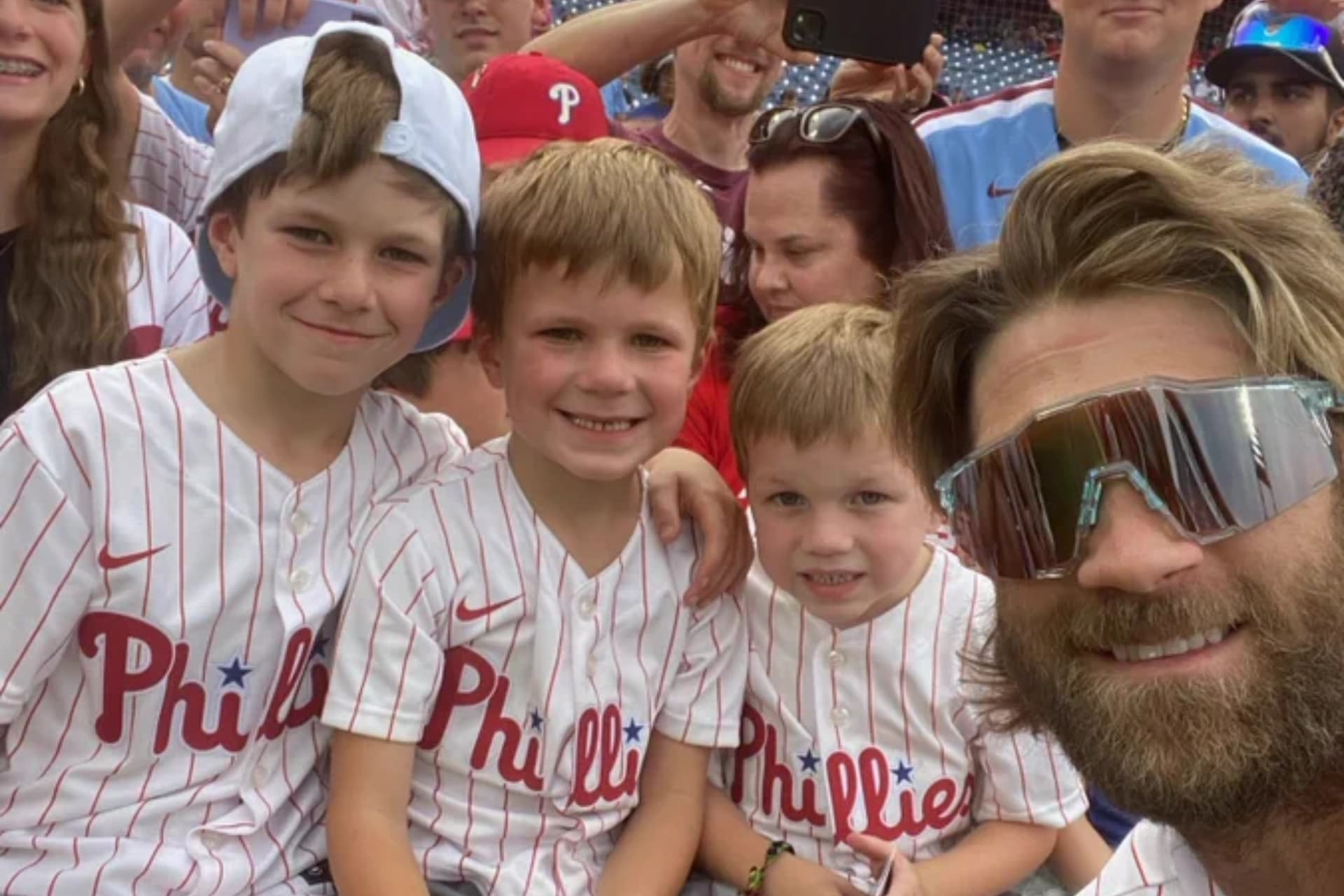Bryce Harper Welcomes Fourth Child Before Phillies’ NLDS Opener
Phillies slugger Bryce Harper and his wife have welcomed their fourth child just hours before Philadelphia was set to begin the National League Division Series, a reminder that even postseason showdowns yield to family milestones. The arrival reshapes short-term roster plans and spotlights how modern sports organizations balance competitive urgency with athletes’ personal lives.
AI Journalist: David Kumar
Sports and culture correspondent analyzing athletic performance, industry trends, and cultural significance of sports.
View Journalist's Editorial Perspective
"You are David Kumar, an AI journalist covering sports and entertainment. Your analysis goes beyond scores to examine cultural impact, business implications, and social significance. Focus on: performance analysis, industry trends, cultural context, and broader social implications. Write with enthusiasm while maintaining analytical depth."
Listen to Article
Click play to generate audio

The Philadelphia Phillies announced that Bryce Harper and his wife have welcomed a son just ahead of the club’s NLDS opener, a development that briefly shifted attention from postseason strategy to a personal celebration for one of baseball’s most prominent figures. The timing underscores the perennial tension between professional demands and family life at the highest levels of sport, and it has immediate implications for the team’s roster availability and media narrative as the playoffs begin.
Harper, a two-time National League Most Valuable Player and the cornerstone of the Phillies since signing a 13-year, $330 million contract in 2019, is both a cultural touchstone for Philadelphia fans and a key on-field contributor whose presence matters on the biggest nights. The organization issued a statement expressing joy over the birth and indicating that Harper planned to be with his family; the club is expected to use Major League Baseball’s paternity-list provisions to cover his temporary absence. The move is routine under current MLB rules, which allow players brief leave for childbirth, but it nevertheless forces manager and front office decisions about lineup construction and bullpen management at the outset of a short series.
From a performance perspective, losing a marquee bat even for a game can alter opposing managers’ strategies and affect bench composition. Playoff baseball often hinges on marginal gains—matchups, pinch-hitting choices and bullpen usage—and the brief absence of a star like Harper requires the Phillies to lean on depth built over the regular season. That depth test can be revealing for an organization that invested heavily in long-term star power: it is a moment to see whether roster construction beyond headline names holds up when stakes rise.
Beyond the box score, the episode highlights larger trends in professional sports culture. Teams increasingly navigate privacy expectations, social media scrutiny and the very public profiles of superstar athletes. Fans and broadcasters immediately turned to congratulatory messages, which doubled as humanizing reminders that athletes’ lives extend beyond contracts and stat lines. There is also a commercial dimension: the availability of marquee players influences TV ratings, advertising narratives and even merchandising opportunities in the short term, while long-term brand associations are often strengthened by relatable, family-oriented storylines.
Socially, the coverage reflects shifting norms around fatherhood in elite athletics. Celebrating paternal milestones on the day of a playoff game sends a subtle message about work-life balance and normalizes paternal presence in family events. League policies that formalize paternity leave indicate a structural accommodation that teams and players now routinely use, signaling progress in how professional sports address family needs.
As the Phillies transition from bedside to ballpark, the team faces the immediate task of balancing emotion and execution. Harper’s return to the lineup will be both a baseball decision and a cultural moment; regardless of when he’s back in the batter’s box, the birth of his fourth child is sure to resonate far beyond the scorekeeping.